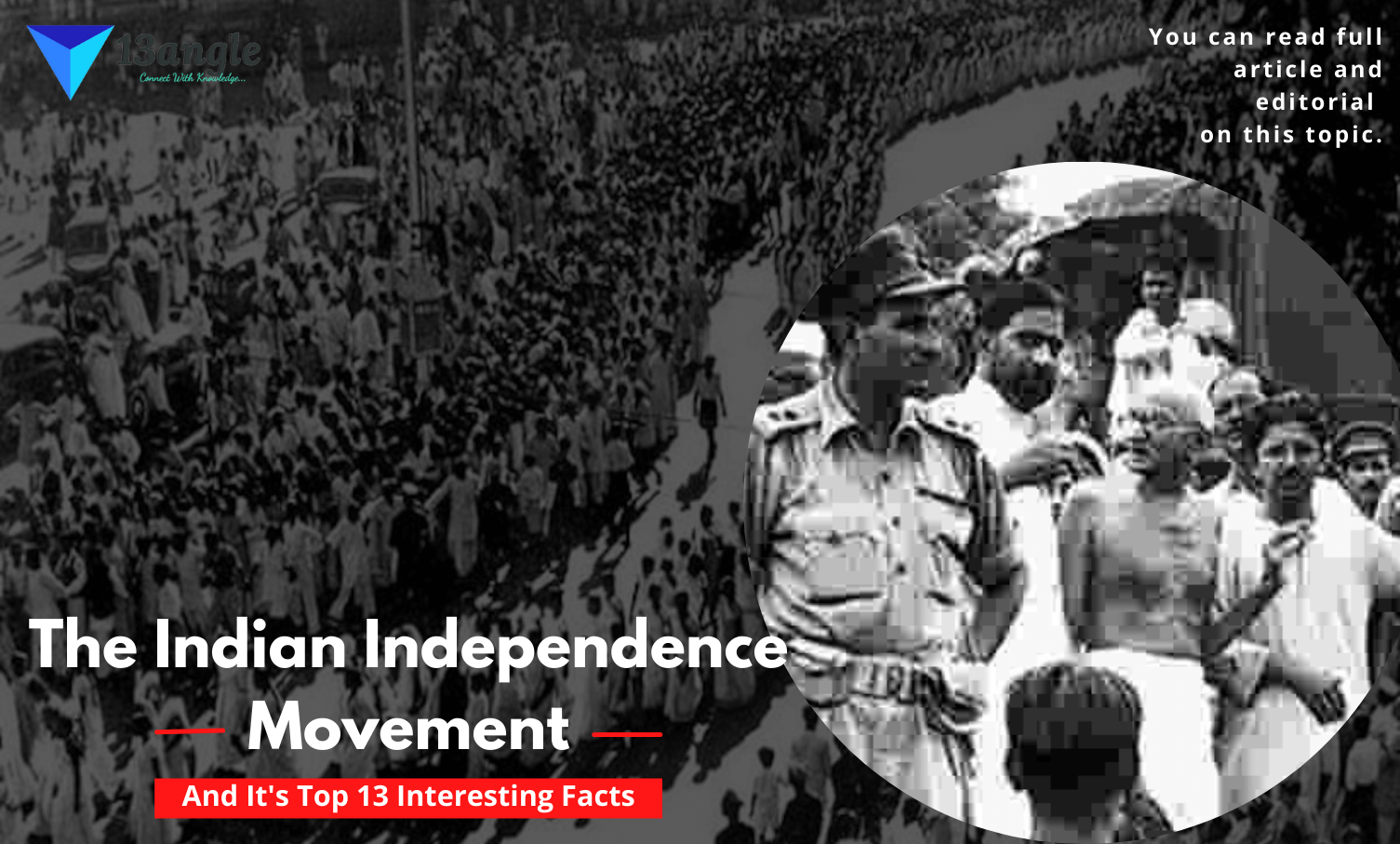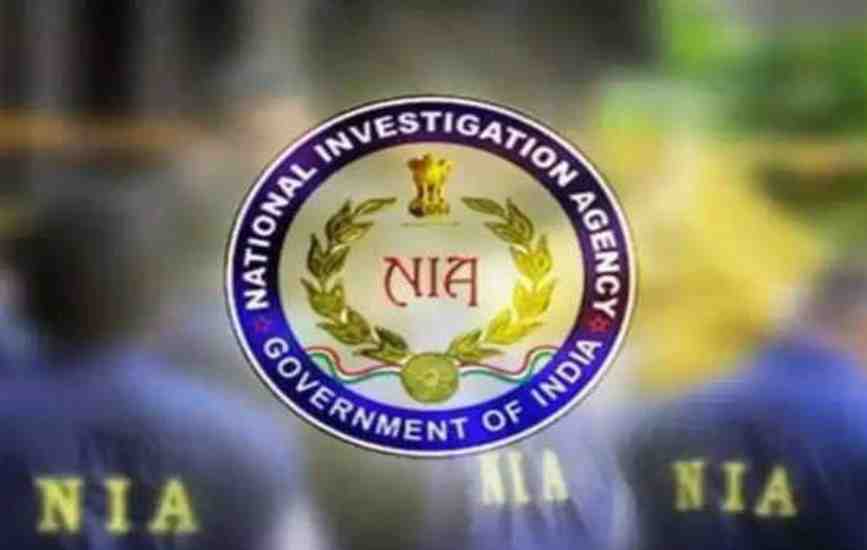
Introduction
- National Investigation Agency (NIA), a statutory body, is a central agency established by the Government to combat terror in India. NIA was created after the 2008 Mumbai terror attacks as a need for a central agency to mainly combat terrorism. Agency aims to be a thoroughly professional investigative agency matching the best international standards. It aims to set the quality of excellence in counter-terrorism and other national security-related investigations at the national level by developing a highly trained, partnership-oriented workforce. It also aims at creating deterrence for existing and potential terrorist groups/individuals. It aims to develop as a storehouse of all terrorist-related information the agency is commissioned to deal with the investigation of terror-related crimes across states without special permission from the states under the written edict from the Ministry of Home Affairs. The deadly terror attack of 26/11 in Mumbai divulged the failure of Intelligence and the ability to track such activities by existing agency in India. In consequence, the Government of India apprehended the need of a specific body to deal with terror-related specific activities in India, sparking the establishment of the NIA. The NIA bolsters its most-wanted list by its branches located in Guwahati, Kochi, Lucknow, Mumbai, Hyderabad, Kolkata, Raipur, Jammu, Chandigarh, Ranchi, Chennai, Patna, Bengaluru, Imphal and headquarters located in New Delhi. The NIA functions as the Central Counter Terrorism Law Enforcement Agency. The NIA has powers to investigate the offences listed in the schedule of the NIA act, which now includes offences under the Unlawful Activities (prevention) Act,1967, Atomic Energy Act, 1962, Anti-Hijacking act, 1982, Suppression of Unlawful Acts Against Safety of Maritime Navigation and Fixed platforms on continental shelf Act 2002, etc.
NIA Bill And Jurisdiction

On 31st December 2008, the agency came into existence with the enactment of the National Investigation Agency Act 2008 by the parliament of India. According to the Bill, the NIA has synchronous authority which enables the central agency to probe terror attacks in any part of the country, covering offences including challenges to the country’s sovereignty and integrity, bomb blasts, hijacking of aircraft and ships, attacks on nuclear installations, etc. The National Investigation Agency Bill and Unlawful Activities (Prevention) Amendment Bill on Tuesday, 30 December 2008, became law as President Pratibha Patil gave her assent to the legislation which was passed in the last session of the parliament.
The NIA Bill 2019 was passed by the parliament on 17th July 2019 by the Minister of Home Home Affairs, Mr Amit Shah. The Bill aims to give more fangs to the investigating powers of the NIA. It commissions the NIA to probe terror attacks targeting Indians and Indian interests abroad. The amended legislation was passed with a majority of 278 in favour and six against in the Lok Sabha. Also, it was passed in the Rajya Sabha after those opposed to it staged a walkout. The amended legislation aims to empower the anti-terror agency to investigate scheduled offences such as human trafficking; circulation of fake currency; manufacture and sale of prohibited arms; and cyber terrorism. As the Agency has been authorised to conduct the investigation and prosecution of offences under the acts specified in the schedule of the NIA Act, a state government may request the Central government to handover the investigation of a case to the NIA, if the case has been registered for the offences as contained in the schedule to the NIA Act. The central government can also order NIA to take over the investigation of any scheduled offence anywhere in India. Officers of the NIA drawn from the Indian Police Service (IPS) and Indian Revenue Service (IRS) have all powers, privileges and liabilities which the police officers have in connection with the investigation of any offence. In 2016, Home Minister Rajnath Singh wanted to end the central agency’s dependence on the approval of state police chiefs before confiscating or attaching assets of people accused of a crime. The National Investigation Agency (Amendment) Act 2019, states that officers of the NIA will have the power to investigate scheduled offences committed outside India, subject to international treaties and domestic laws of other countries. The central government may direct the NIA to investigate such cases as if the offence has been committed in India. The special court in New Delhi will have jurisdiction over these cases.
Special NIA Courts
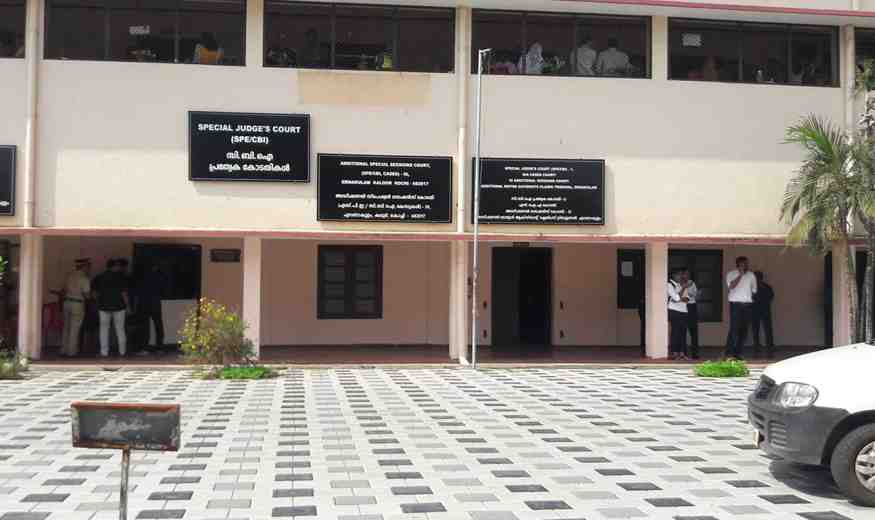
Various Special Courts have been notified by the Central Government of India for hearing of the cases registered at different police stations of NIA under Sections 11 and 22 of the NIA Act 2008. Supreme Court of India has also been commissioned to transfer cases from one special court to any other special court within or outside the state if the same is in the interest of justice of the prevailing circumstances in any state. The NIA special courts are authorised with all powers of the court of sessions under the Code of Criminal Procedure, 1973 for the trial of any offence. The NIA Act demarcates a category of offences called ‘Scheduled Offences’. These are offences under other penal statutes that can be investigated by the NIA, including, inter alia, offences under laws dealing with national security and terrorism. The NIA Act creates special procedures for trials that deviate from the ordinary law on criminal procedure and curtails several procedural rights of the accused. It also provides for the designation of ‘Special Courts’ for the trial of these offences, though these Special Courts are not provided for under those penal statutes. This signals a return to an earlier trend under older, now repealed anti-terrorism laws,2 of constituting Special Courts – a trend that had been discontinued in the anti-terrorism laws operating at present.
The National Investigation Agency organised a two-day Brazil, Russia, India, China & South Africa (BRICS) seminar on “misuse of Internet for terrorist purposes and Role of Digital Forensics in Terrorist Investigations” on 13th and 14th April 2021. It was Inaugurated by Union Home Secretary Shri Ajay Kumar Bhalla. 40 experts from the five-member countries deliberated upon technical sessions including ‘Exploitation of social media as an Arsenal’, Dark Web and Anonymizers’, ‘emerging technologies and Artificial Intelligence, ‘Cryptocurrency and Virtual assets: Vulnerability of privacy and online stealth’, ‘Equipping Law Enforcement Agencies: CT Investigations and Digital Forensics to deal with such challenges.
NIA Mission
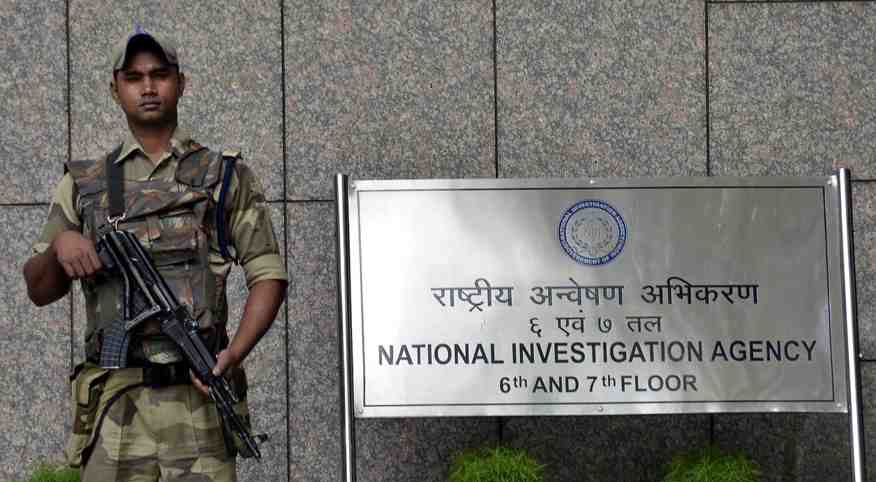
Investigate professionally the scheduled offenses utilizing the latest scientific methods.
Facilitating a speedy and effective trial.
Becoming a result-oriented and professional organization, that upholds the Indian Constitution and the law of the land, and that gives utmost importance to Human rights and dignity.
Creating a professional workforce through the means of regular training and best practices exposure.
Showing scientific temper and a spirit of progress while discharging their duties.
Ushering in the latest technology and modern methods in the activities of the NIA.
Having cordial relations with central and state governments and other law enforcement agencies of the country.
Helping the states and other agencies with the investigation of terror-related cases.
Create and share with states and other agencies a database of all information about terrorists.
Analyzing terrorism-related laws in India and periodically reviewing them and suggesting any required changes.
Win the citizens’ confidence by means of fearless and selfless efforts.
National (Amendment) Act 2019
The NIA (Amendment) Act 2019 was passed by the parliament and received presidential assent in July 2019. The Act has made a few major changes to the original NIA Act of 2008. The changes are discussed below:
1. The amendment allows the agency to investigate the following new offences as well:
- Human Trafficking
- Counterfeit currency or bank notes-related offences.
- Sale or manufacture of prohibited arms.
- Offences under the Explosive Substances Act, of 1908
- Cyber terrorism
2. The amendment also expands the jurisdiction of the NIA. Now, it has the authority to investigate offence that is committed outside the Indian Territory subject to international treaties and domestic laws of other nations.
3. The amendment also allows the central government to constitute special courts to conduct trials of scheduled offences. Accordingly, the government will have the power to designate sessions courts as special Courts, after consulting with the chief justice of the High Court. The Act also authorizes the state governments to designate special courts. The government can appoint more than one special court in an area. Currently, there are 38 Special NIA courts across the states and 7 across the UTs. The special courts’ judges are appointed by the GOI in consultation with the High Court Chief Justices of the area. The trials of the NIA special courts have precedence over the trial of the accused in any other case in any other court.
Terrorist Organisations, Naxals And Constitutionality
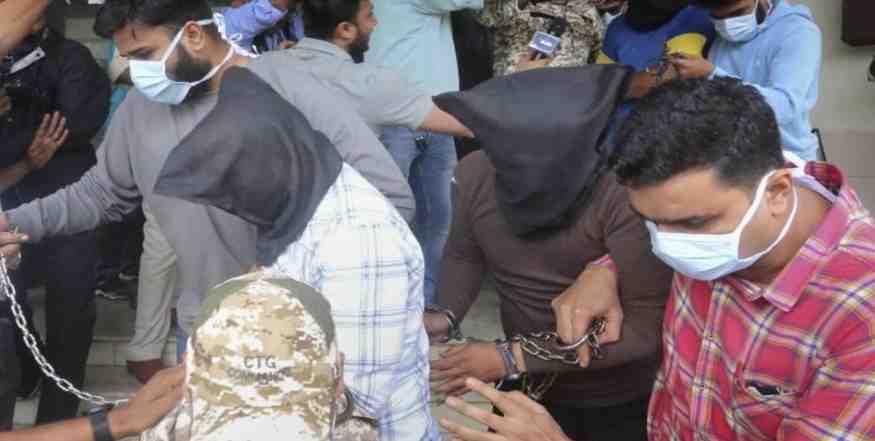
NIA has been active in the war against terror in Jammu and Kashmir. On January 18, 2019, NIA filed a charge sheet against 12 people including Lashkar-e-Taiba terror group chief Hafiz Saeed and Hizbul Mujahideen chief Syed Salahuddin. This charge sheet was filed after nearly eight months of investigations spanning six states in India during which over 300 witnesses were examined, 950 “Incriminating documents” and 600 electronic devices were seized. NIA has also stated that the war against terror in Kashmir is not only about terror funding, but about a conspiracy to wage war against India too. During the Investigation the NIA arrested people allegedly involved in stone-pelting incidents for the first time including Kashmiri Photojournalist Kamran Yusuf. The NIA has identified two Naxalite commanders in Bastar who were part of the ambush of almost the entire congress’ were Chhattisgarh top brass.
Under the constitution of India, law, and order state subjects. There have been questions raised on how NIA is usurping state rights under the guise of fighting terror. In 2020 Chhattisgarh state filed a case against the act in the supreme court that the said act violates the constitution. A US embassy cable accessed by The Hindu says that union home minister P. Chidambaram, in his discussion with FBI director Robert Mueller, was coming perilously close to crossing constitutional limits in empowering the NIA and that the National Investigation Agency’s powers could be challenged in the courts as violating constitutional provisions on Centre-state relations.
Eligibility To Join NIA

There is no direct way to be an officer in the service. One can apply for SI (Sub Inspector) in the service. For the post of SI in the services, one must clear the examination called SSC-CGL which is conducted once in a year. Selection is done based on the exam. SSC-CGL is Staff selection commission – Combined Graduate Examination. The exam is divided into four tires. One must clear all three tiers to get selected.
To join the National Investigation Agency, it is mandatory to have a bachelor’s degree in any discipline from any recognized institute or university. The age of candidate should not be more than 30 years old. There are age relaxations for candidates who belong to OBC, SC or ST.
The officer in the National Investigation Agency is mostly selected from the Indian Revenue Service, Indian police service, etc. There is only direct way to join NIA is through the SSC CGL exam. The exam is tough, and the competition is too much.
- This job is physically challenging when one is posted in the field. The following are some physical requirements to join the service:
- The eye must be 6/6 with or without glasses
- The height must be 170cm or more for the male candidate and 157cm or more for the female candidate.
- The chest expansion should be at least 5cm. No chest expansion is required for the female candidates.
- Make sure your body does not carry any serious disease.
- There are basically four categories based on which the employee is paid by the government. Group A, Group B, Group C and Group D. The employees of the National Investigation Agency fall in the Group A category. They get around 47,000/- to 85,000/- per month depending on the job position and area of posting. After the salary, they get allowances like:
- Travel allowances
- Dearness allowances
- Ration
- Free stay at the government quarter.
There are also many more allowances, but these are the popular ones. In almost every government organisation, the promotion is done based on experience or through the internal or department exam. One can appear for the departmental exam to get a further promotion. Every year, the rules and regulations for the promotion criteria keep changing. You must check the official notification to get the exact details.
NIA has been portrayed in Amazon Prime’s video series called The Family man. The series featured Manoj Bajpayee as an NIA officer who was working in the TASC department under the NIA. The First TASC committee was organized during the 1998 war.
Top 13 Interesting Facts About The NIA
The NIA was established as a central agency to combat terrorism after the 2008 Mumbai terror attacks.
The agency is authorized to examine any terror-related incident across the country without special permission from the states.
The state government might ask the federal government to turn over a case to the NIA for investigation.
The central government can refer cases to the NIA for investigation anywhere in India, and the officials handling these cases are from the IPS and IRS cadre.
The NIA is the country’s primary counter-terrorism law enforcement organization.
Terrorism, waging war against the government, attacks on nuclear installations, and other crimes are investigated by the agency.
It went into effect after the National Investigation Agency Act of 2008 was passed by parliament.
The goal of the agency is to become a professional investigation agency that meets International standards.
The agency also serves as a deterrence to current and potential terrorists and a repository of terrorism-related information.
The NIA is a part of the Ministry of Home Affairs.
The organization’s headquarters are in New Delhi, and it has eight regional offices around India.
A Director-general is in charge of the organization (an IPS officer).
The NIA’s most-wanted list is updated regularly.
